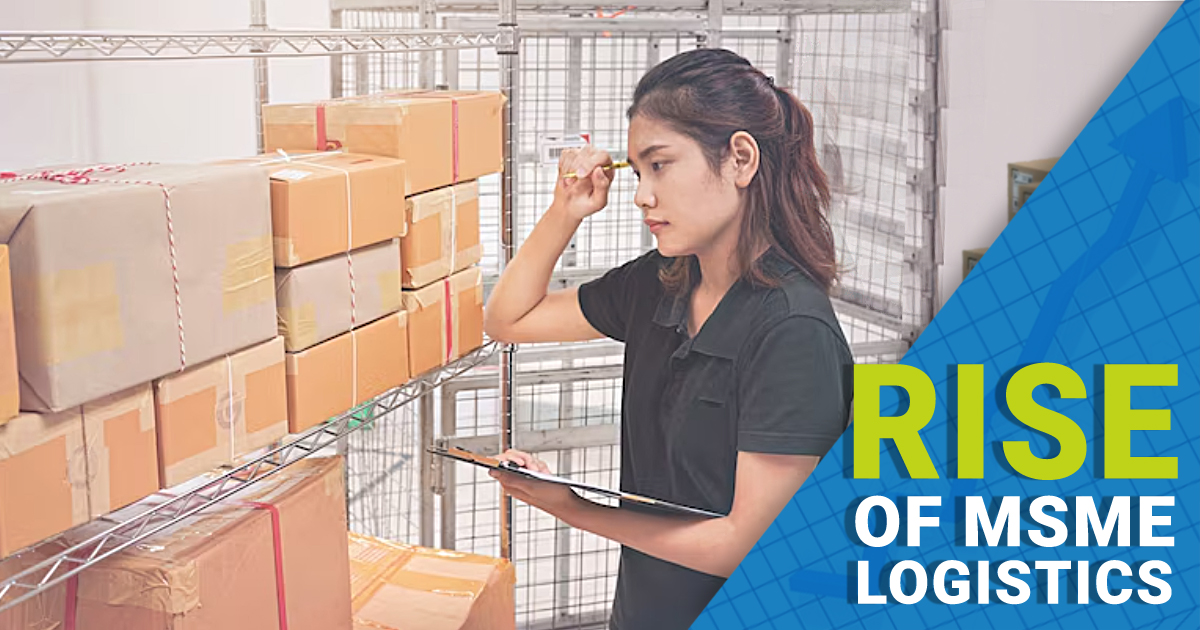 The region of Southeast Asia has a growing need for logistics services for MSMEs because of a number of factors:
The region of Southeast Asia has a growing need for logistics services for MSMEs because of a number of factors:
- The growing number of MSMEs in the region.
- The increasing popularity of e-commerce.
- The need for MSMEs to improve their supply chain efficiency.
Booming Internet Economy Propels The Growth of MSMEs in The Philippines
The MSMEs sector in the Philippines is substantial and constantly expanding. According to the Philippine Statistics Authority (PSA), there are more than 99.5 million MSMEs, which make up 99.6% of all businesses in the country. These companies employ 63 million people or 63.4% of the workforce.
The demand for MSME logistics is increasing due to the growing popularity of e-commerce. By 2025, e-commerce sales in the Philippines are predicted to reach $10 billion, propelled by the country’s expanding middle class, internet access, and the convenience of online shopping.
To keep up with bigger businesses, MSMEs must enhance their supply chain efficiency. This involves having dependable and reasonably priced logistics services at their disposal. These services can assist MSMEs in cutting costs, improving delivery times, and expanding their customer reach.
Numerous companies in the Philippines and Southeast Asia offer logistics services to MSMEs. These services encompass warehousing, transportation, and fulfillment, among others.
The increase in demand for MSME logistics is a promising development for the area. It will enhance the productivity of the MSME sector and lead to the creation of employment opportunities.
Here are some advantages of using logistics services for MSMEs:
- Reduce costs: MSMEs can use logistics services to take advantage of economies of scale and lower their costs.
- Improved delivery times: Logistics services can assist MSMEs in enhancing their delivery times by establishing a dependable and efficient delivery network. This can aid MSMEs in meeting their customers’ requirements and improving their overall customer satisfaction.
- Increased reach: Logistics services can assist MSMEs in enhancing their customer satisfaction by expanding their reach. By providing access to national and international markets, MSMEs can reach a broader customer base, which is beneficial.
If you are an MSME in the Philippines or Southeast Asia, consider using logistics services to improve your business. Logistics services can help you reduce costs, improve delivery times, and reach a wider customer base.
Common Logistics Challenges Faced By MSMEs
MSMEs encounter logistics challenges, which can be particularly difficult due to their smaller business size. Unfortunately, these challenges are not uncommon and can often become more complicated for MSMEs.
- Limited Resources: MSMEs often need more resources, including financial limitations, a limited workforce, and inadequate infrastructure. These limitations can affect their ability to invest in advanced logistics technologies, hire skilled personnel, or expand their operations.
- Inefficient Supply Chain: MSMEs may need help managing their supply chain effectively. This includes challenges in inventory management, order fulfillment, and coordinating with suppliers and distributors. Inefficient supply chain processes can result in delays, stockouts, and dissatisfied customers.
- Lack of Technology Adoption: Many MSMEs in the Philippines need more access to technology and face challenges in adopting digital solutions. MSMEs often have difficulty implementing inventory, warehouse, or transportation management systems, which can streamline operations and improve efficiency.
- Complex Regulatory Environment: MSMEs often need help navigating the complex regulatory landscape in the Philippines. Compliance with customs regulations, obtaining permits, and dealing with bureaucratic procedures can be time-consuming and resource-intensive for small businesses.
- Risk Management: Managing risks associated with logistics, such as theft, damage, or disruptions in the supply chain, can be challenging for MSMEs. In addition, limited resources and access to insurance options may leave them vulnerable to unforeseen events and financial losses.
These are some common logistics challenges faced by MSMEs in the Philippines. By addressing these challenges, MSMEs can improve their efficiency, reduce costs, and enhance their competitiveness in the market.
SEE ALSO:
